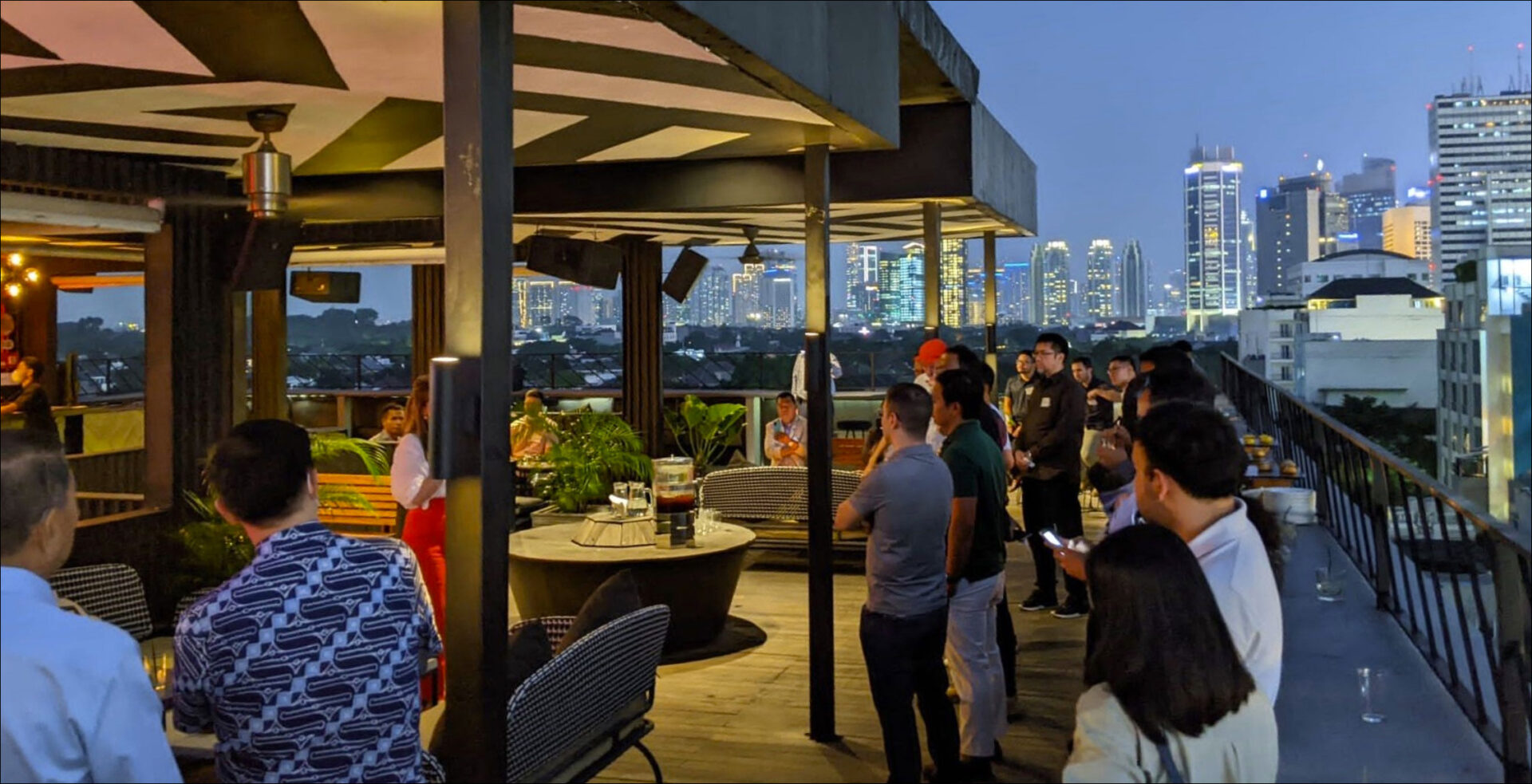In Indonesia, Israelis talk technology as prospects dim for diplomatic relations
Business and social connections bring Israelis to Jakarta, where government tolerates contact while maintaining distance from Abraham Accords

Samuel Neufeld
Indonesians and Israelis mix at rooftop gathering in Jakarta.
On a rooftop in Jakarta in mid-July, a group of Israelis and Indonesians tried to break through the political divide between their countries and talked about doing business deals together.
Many knew each other from chatting over Zoom for...










